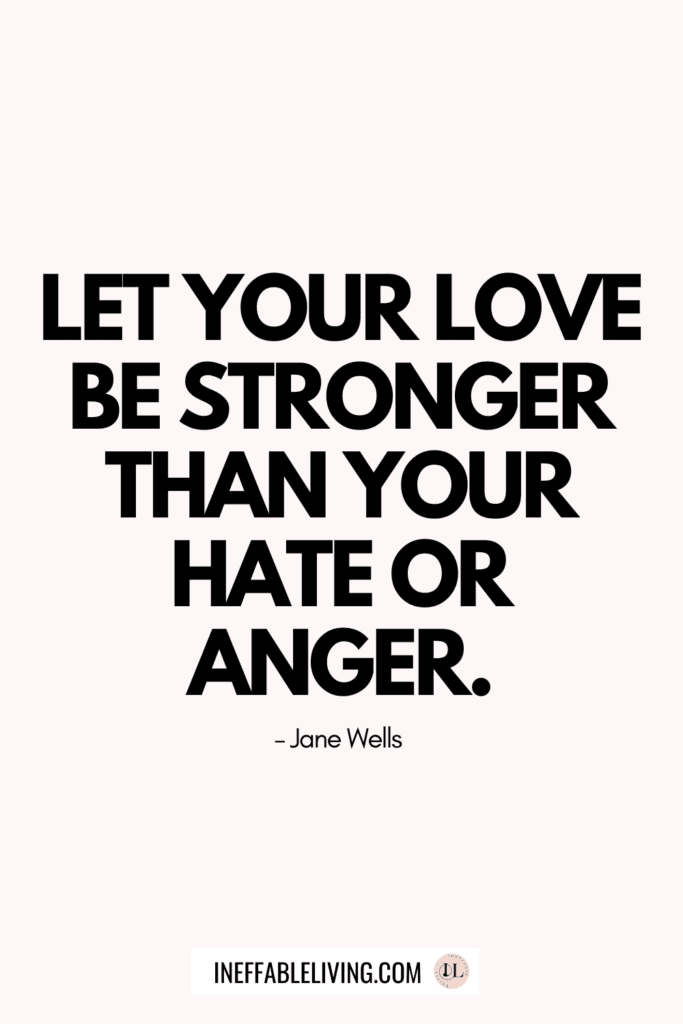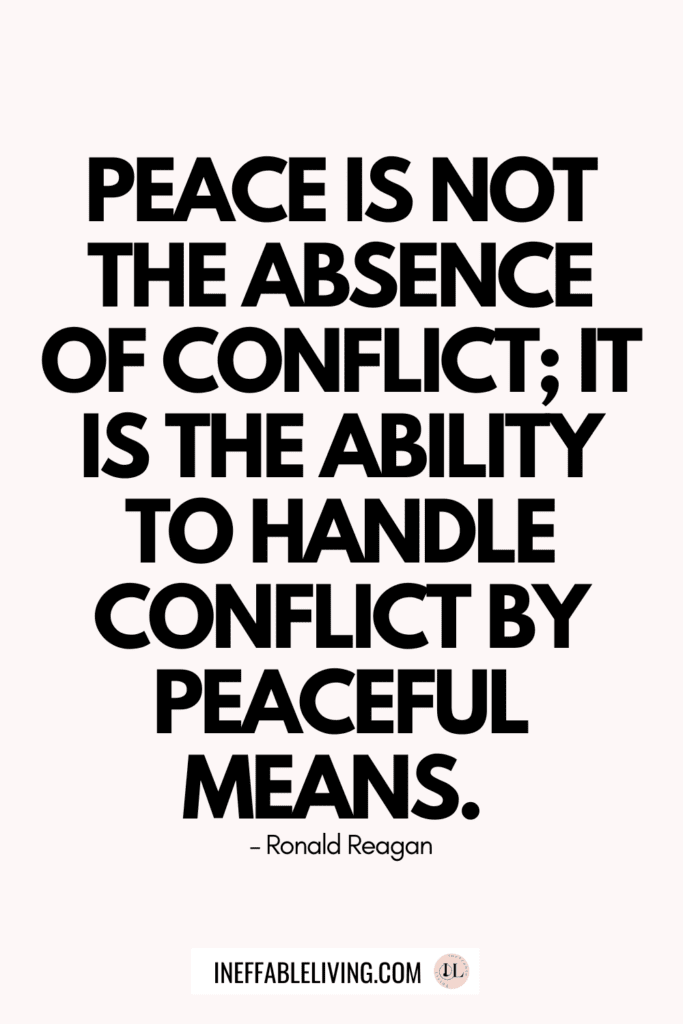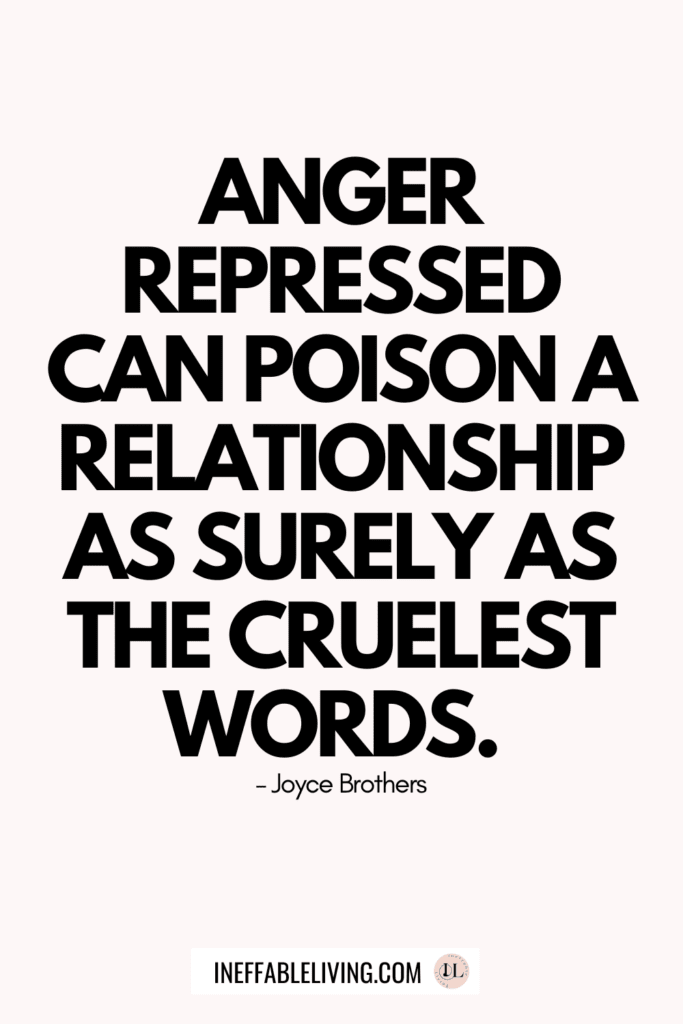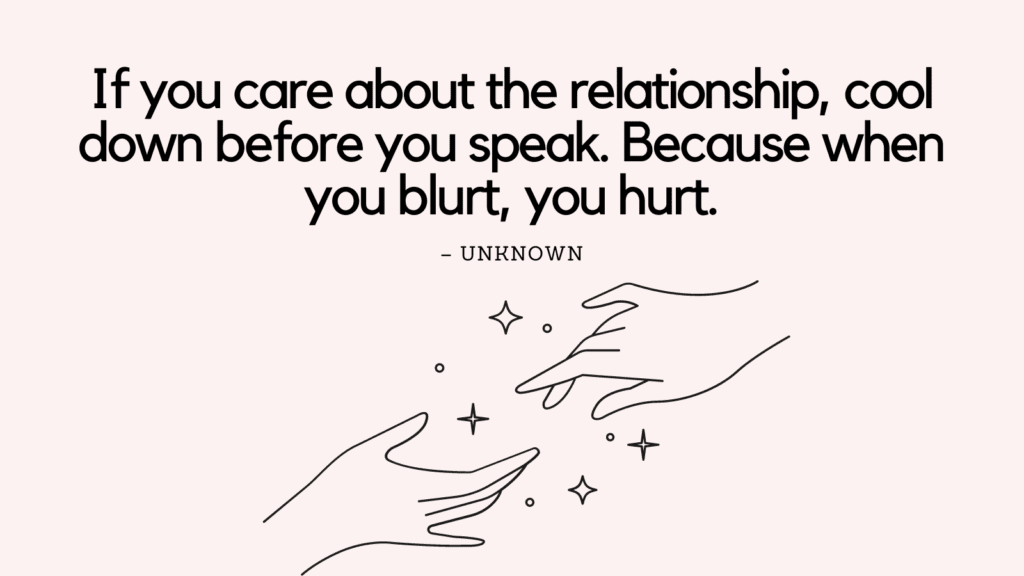This post contains some of the best relationship anger quotes to help you improve your relationship.
Relationship Anger Quotes
1. “Anger spoils relationships where there should be great reciprocity.” – Robert A.F. Thurman
2. “Anyone can become angry. That is easy. But to be angry with the right person, to the right degree, at the right time, for the right purpose and in the right way… that is not easy.” – Aristotle
3. “In a good relationship, people get angry, but in a very different way. The Marriage Masters see a problem a bit like a soccer ball. They kick it around. It’s ‘our’ problem.” – John M Gottman
4. “Learn the wisdom of compromise, for it is better to bend a little than to break.” – Jane Wells

5. “Remember, if you want to love your life and live it to the fullest, don’t let the sun go down on your anger. If you don’t have a solution to the issue, agree to disagree and focus on the importance of the relationship.” –Victoria Osteen
6. “When a man can listen to a woman’s feelings without getting angry and frustrated, he gives her an incredible gift. He makes it safe for her to express herself. The more she is able to express herself, the more she feels heard and understood, and the more she is able to give a man the loving trust, acceptance, appreciation, admiration, approval, and encouragement that he needs.” – John Gray
Related: Top 14 CBT Exercise For Anger Management (+FREE Anger Worksheets)

7. “The perfect relationship is not that you never get angry, upset or irritated with each other… It’s how fast you resolve & bounce back to normal.” – Unknown
8. “Anger repressed can poison a relationship as surely as the cruelest words.” – Joyce Brothers
9. “If we are to feel the positive feelings of love, happiness, trust, and gratitude, we periodically also have to feel anger, sadness, fear, and sorrow.” – John Gray

10. “It’s impossible to remain angry at someone you truly love. Anger lasting for more than 3 days indicates that you’re not in love.” – Unknown
11. “A moment of patience in a moment of anger saves a thousand moments of regret.” – Unknown
12. “Sometimes in anger, some wrong words come out of our mouths to our loved ones. This wrong word out in anger can end the relationship. That is why it is very important to control anger.” – Unknown
13. “Anger doesn’t solve anything. It builds nothing, but it can destroy everything.” – Lawrence Douglas Wilder
Getting Back Together After Separation Prompts
14. “A moment of anger can destroy a lifetime of work, whereas a moment of love can break barriers that took a lifetime to build.” – Leon Brown
15. “If you care about the relationship, cool down before you speak. Because when you blurt, you hurt.” – Unknown
16. “Let your love be stronger than your hate or anger.” – Jane Wells
Related: Am I Controlling In My Relationship Quiz
17. “Always remember when it comes to family arguments and disputes. Blood is thicker than anger.” – Stanley Victor Paskavich
18. “Never let a problem to be solved become more important than a person to be loved.”- Barbara Johnson
19. “Peace is not the absence of conflict; it is the ability to handle conflict by peaceful means.” – Ronald Reagan
20. “Instead of suppressing conflicts, specific channels could be created to make this conflict explicit, and specific methods could be set up by which the conflict is resolved.” – Albert Low
21. “Peace cannot be kept by force. It can only be achieved by understanding.” – Albert Einstein
Related: Top 25 Tips On How To Set Boundaries In A Toxic Relationship? (+FREE Worksheets PDF)
22. “Contempt is the number one relationship killer, according to The Gottman Institute, which has empirically studied the science of relationships for decades. If a critical statement sounds like “I don’t like that,” a contemptuous statement escalates it to “I don’t like that and you’re a piece of shit because of it.” It’s normal to feel anger and resentment, and even contempt at times. But beware of bottling emotions and letting anger and disappointment morph into full-on contempt. Releasing it as objective statements of what is troubling you, framed in kind or forgiving language, will be much more palatable and convincing.” – Morgan Johnson
23. “When pursuing partners reach out to repair disconnection, a negative response from a partner fuels an intensified protest in the form of criticism, blame, demands, or threats. Their pain and fear in the disconnection appear as anger and aggressiveness to the withdrawing partner, who feels threatened by the increased conflict. The withdrawing partner will commonly stem the tide of emotions with defensiveness, stonewalling (refusing to respond), or pulling away. That retreat then fuels even more intensity in the pursuing partner, which is met with increased withdrawal, and around and around they go, paradoxically creating in each other the very responses they desire the least.” – Lori Cluff Schade
24. “Emotions that underlie and drive the more obvious coping emotions; for example, anger is often a coping emotion fueled by a core emotion of hurt or fear.” – Lori Cluff Schade
25. “Anger is one of the most painful emotions we experience, and the most difficult to use wisely and well. Yet our anger is an important signal that always deserves our attention and respect. The difficulty is that feeling angry doesn’t tell us what is wrong, or what specifically we can do that will make things better rather than worse.” – Harriet Lerner
26. “The challenge of anger is at the heart of our struggle to achieve intimacy, self-esteem, and joy. Learning how to deal with it is worth the journey, even though there are no six-easy-steps to personal fulfillment and relational bliss.” – Harriet Lerner
27. “Anger is a signal, and one worth listening to. Our anger may be a message that we are being hurt, that our rights are being violated, that our needs or wants are not being adequately met, or simply that something is not right. Our anger may tell us that we are not addressing an important emotional issue in our lives, or that too much of our self— our beliefs, values, desires, or ambitions—is being compromised in a relationship. Our anger may be a signal that we are doing more and giving more than we can comfortably do or give. Or our anger may warn us that others are doing too much for us, at the expense of our own competence and growth.” – Harriet Lerner
28. “The taboos against our feeling and expressing anger are so powerful that even knowing when we are angry is not a simple matter. When a woman shows her anger, she is likely to be dismissed as irrational or worse.” – Harriet Lerner
29. “Anger is neither legitimate nor illegitimate, meaningful nor pointless. Anger simply is. To ask, “Is my anger legitimate?” is similar to asking, “Do I have a right to be thirsty? After all, I just had a glass of water fifteen minutes ago. Surely my thirst is not legitimate. And besides, what’s the point of getting thirsty when I can’t get anything to drink now, anyway?” Anger is something we feel. It exists for a reason and always deserves our respect and attention. We all have a right to everything we feel—and certainly our anger is no exception.” – Harriet Lerner
30. “If our old familiar ways of managing anger are not working for us, chances are that we fall into one or both of the following categories: In the “nice-lady” category, we attempt to avoid anger and conflict at all costs. In the “bitch” category, we get angry with ease, but we participate in ineffective fighting, complaining, and blaming that leads to no constructive resolution.” – Harriet Lerner

Why We Get Angry With Our Partners?
There are many reasons why people get angry with their partners. Some common reasons include:
1) Unmet expectations – when we have certain expectations of our partner and they do not meet them, we may feel frustrated and angry.
2) Communication breakdown – when communication between partners breaks down or isn’t clear, misunderstandings can occur which can lead to anger.
3) Differences in values or beliefs – when partners have different values or beliefs, it can create conflict and lead to anger.
4) Feeling unappreciated – when one partner feels that their efforts are not being appreciated or acknowledged, they may start to feel angry or resentful.
5) Feelings of betrayal or mistrust – when trust has been broken or betrayal has occurred in the relationship, it can lead to intense feelings of anger.
It’s important to recognize these triggers and work on effective communication, managing expectations, and building trust to maintain a healthy and happy relationship.
The Impact Of Anger On Relationships
Anger is a normal and natural emotion that we all experience at different times.
However, when it is not managed properly, it can have a negative impact on relationships.
Here are some ways in which anger can affect relationships:
1. Communication breakdown: Anger can lead to negative communication patterns, such as yelling, blaming, and name-calling. This can make it difficult for partners to understand each other and resolve conflicts.
2. Trust issues: Constant anger outbursts can erode trust in a relationship. When a partner is always angry, the other partner may feel like they are walking on eggshells, never knowing what might trigger an outburst.
3. Emotional distance: People who are constantly angry can be emotionally draining to be around. Over time, this can lead to emotional distance and disconnection in the relationship.
4. Resentment: When one partner is always angry, the other partner may start to feel resentful and bitter. This can create a toxic environment in the relationship.
5. Physical violence: In extreme cases, anger can lead to physical violence. This can cause serious harm to both partners and has no place in a healthy relationship.
To prevent anger from negatively impacting your relationships, it is important to learn healthy coping mechanisms to manage anger and communicate effectively with your partner.
Seeking therapy or counseling can also help you develop these skills and address any underlying issues contributing to your anger.
Strategies For Managing Anger In Relationships
Here are some strategies for managing anger in relationships:
1. Recognize the Signs of Anger
Start by identifying when anger is building. Physical cues like a racing heart, clenched fists, or tight muscles often signal frustration. Awareness helps you pause before reacting impulsively.
2. Practice Self-Regulation
When anger flares, take a moment to calm yourself. Use techniques like deep breathing, counting to ten, or stepping away briefly to collect your thoughts. This creates space for a more measured response.
3. Use “I” Statements
Express your feelings without blame. For example, say, “I feel upset when…” instead of “You always make me angry.” This keeps the conversation focused on your emotions rather than triggering defensiveness in your partner.
4. Focus on the Issue, Not the Person
Avoid personal attacks or bringing up past grievances. Stay focused on the specific issue at hand and work collaboratively to resolve it. Remember, the goal is to solve the problem, not “win” the argument.
5. Listen to Understand
Take the time to truly hear your partner’s perspective. Practice active listening by maintaining eye contact, nodding, and summarizing their points. Acknowledging their feelings can de-escalate tension and promote empathy.
6. Set Boundaries Around Conflict
Agree on rules for handling disagreements, such as avoiding shouting, name-calling, or discussing sensitive issues when one partner is overtired or stressed. Boundaries create a sense of safety and respect.
7. Take Responsibility for Your Anger
Your emotions are your responsibility. Instead of blaming your partner for how you feel, explore why certain behaviors upset you. Reflect on whether the anger stems from unmet needs, past experiences, or misunderstandings.
8. Time Out, Not Walk Out
If an argument gets heated, take a break to cool down but reassure your partner you’ll return to the discussion. For example, say, “I need 15 minutes to collect my thoughts, and then we can talk.” This prevents hurtful words spoken in the heat of the moment.
9. Practice Empathy
Try to see the situation from your partner’s point of view. What might they be feeling or experiencing? Empathy helps soften anger and shifts the focus from confrontation to collaboration.
10. Avoid Passive-Aggressive Behavior
Bottling up anger or expressing it indirectly, like through sarcasm or silent treatment, only harms the relationship. Instead, be honest about your feelings in a respectful and constructive way.
11. Use Humor Wisely
Humor can diffuse tension when used thoughtfully. A light-hearted comment or shared laugh can remind you both of your bond. However, avoid using humor to dismiss serious concerns or feelings.
12. Resolve Conflict Constructively
Work with your partner to find solutions that work for both of you. Focus on compromise and collaboration, ensuring each person feels heard and valued in the resolution process.
13. Seek Professional Help if Needed
If anger becomes unmanageable or leads to frequent conflict, consider couples therapy or anger management counseling. A trained professional can provide tools and strategies tailored to your situation.
14. Reflect After the Conflict
Once emotions settle, reflect on the argument. Ask yourself, “What triggered my anger?” and “How could I handle it better next time?” Share insights with your partner to grow together.
15. Focus on the Bigger Picture
In moments of anger, remind yourself of the love and commitment you share. Maintaining perspective helps you prioritize the relationship over the immediate frustration.
Final Thoughts
Managing anger in relationships takes practice, patience, and a willingness to grow. By approaching conflict with respect and empathy, you can turn moments of tension into opportunities for deeper understanding and connection. Healthy communication and self-awareness are key to keeping your relationship strong and harmonious.



